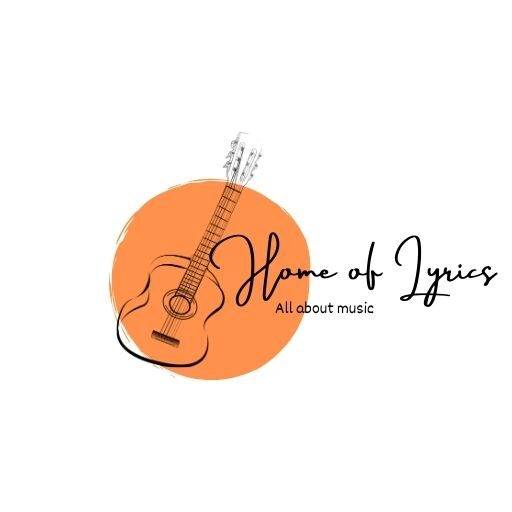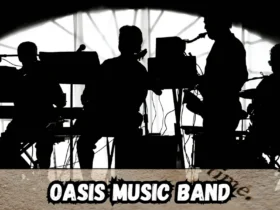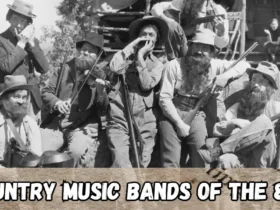Formed in 1987, Green Day has been pivotal in punk and alternative music. Rising from the 1980s Bay Area punk scene to mainstream fame, their 1994 album ‘Dookie’ propelled punk rock in the U.S. and influenced the pop-punk movement.
Beyond music, their ‘American Idiot’ album inspired a Tony-winning Broadway show, reflecting their cultural impact. With 75 million records sold globally, they’re one of the top-selling artists.
This article ranks their 16 best songs by Green Day, considering lyrical depth, cultural impact, chart success, and unique trivia, showcasing Green Day’s influence on music and culture.
1. Good Riddance (Time of Your Life)
“Good Riddance (Time of Your Life),” an acoustic departure from Green Day’s punk rock style, was released in 1997 from their ‘Nimrod’ album. Billie Joe Armstrong wrote the song in 1993, reflecting themes of change and moving forward after his girlfriend moved to Ecuador. Originally too different for ‘Dookie’, it found its place in ‘Nimrod’ with added strings.
The song resonated with listeners, especially high school seniors, for its nostalgic lyrics, becoming a staple at proms and graduations. Rolling Stone recognized it as one of the “20 Best Graduation Songs of the Past 20 Years.” The track’s commercial success marked it as one of Green Day’s most popular singles, noted for the authentic feel of Armstrong’s initial fumble with the opening chords in the recording.
2. American Idiot
Green Day’s “American Idiot,” the title track from their 2004 concept album, marked a significant comeback for the band. Written during George W. Bush’s presidency, the song critiques the American media and political climate, particularly focusing on themes of fear and xenophobia in a post-9/11 world. The track’s cultural impact was profound, sparking political dialogue among fans and extending its influence to the 2016 U.S. presidential election, where Armstrong used it for a voter registration push. The accompanying music video, featuring the band against a backdrop of a melting green American flag, won the Viewer’s Choice Award and added a striking visual element to the song’s message.
“American Idiot” achieved top chart positions in 27 countries, including the first spot on the Billboard 200 for Green Day, and peaked at number one in 18 other countries. With over 16 million copies sold worldwide, it stands as the band’s second best-selling album. The album’s success led to a Broadway musical adaptation, further solidifying its cultural significance.
3. Boulevard of Broken Dreams
“Boulevard of Broken Dreams,” a standout track from Green Day’s “American Idiot,” was released on November 29, 2004. Written by Billie Joe Armstrong during a personal retreat in New York City, it articulates feelings of loneliness and self-discovery, contrasting the preceding track “Holiday.” The song’s cultural impact was amplified by its iconic music video and radio success. In the U.S., it peaked at number two on the Billboard Hot 100 and sold over 2 million copies, alongside international chart dominance. It won a Grammy for Record of the Year in 2006. Interestingly, the song drew comparisons to Oasis’s “Wonderwall” for its similar chord progression, even inspiring a mash-up, “Boulevard of Broken Songs.” Rolling Stone’s recognition of it as one of the decade’s best songs cements its significance in Green Day’s catalog and as a poignant commentary on urban disillusionment.
4. Basket Case
“Basket Case,” released in August 1994, is a seminal track from Green Day’s album “Dookie.” This song, resonating deeply with themes of anxiety and panic disorder, is a personal account of lead singer Billie Joe Armstrong’s own mental health struggles. Its raw, candid lyrics gave voice to similar experiences of many, particularly among youth, making it an anthem for those grappling with angst and alienation.
The song’s cultural impact was amplified by its iconic music video, filmed in an abandoned mental institution in California, and its extensive radio play. Chart-wise, “Basket Case” was a resounding success, topping the Billboard Modern Rock Tracks chart for five weeks and contributing significantly to Green Day’s mainstream breakthrough. It also received a Grammy Award nomination in 1995 for Best Rock Vocal Performance by a Duo or Group.
Interestingly, “Basket Case” has been recognized repeatedly for its enduring impact and legacy. In 2006, it was voted the Greatest Punk Song of All Time on BBC Radio 1’s Lock Up Special. Further cementing its place in rock history, Rolling Stone ranked it among the “500 Greatest Songs of All Time” in 2021, and it remains one of the most streamed Green Day songs on Spotify, with over 926 million streams as of March 2023.
5. Wake Me Up When September Ends
“Wake Me Up When September Ends,” a poignant ballad from Green Day’s “American Idiot,” stands out as a deeply personal song for frontman Billie Joe Armstrong. Written about the death of his father from esophageal cancer when Armstrong was just 10 years old, the song reflects his profound sense of loss and grief. This emotional depth resonated with listeners, allowing them to connect with the song on a personal level.
Chart-wise, the song was a significant success, peaking at number six on the US Billboard Hot 100 and achieving platinum certification. It also enjoyed top-ten status in several other countries, including the UK and Canada. Notably, the song broke Green Day’s streak of three consecutive number-one hits on the Modern Rock Tracks chart, peaking at number two.
The music video, directed by Samuel Bayer and featuring Jamie Bell and Evan Rachel Wood, highlights the impact of war on relationships. It portrays a love story torn apart by the Iraq War, effectively capturing the theme of loss central to the song. The video’s narrative, focusing on the heartache and pain of separation due to war, further amplified the song’s emotional impact.
6. Holiday
“Holiday,” from Green Day’s album “American Idiot,” is known for its strong political stance, criticizing war and government. Billie Joe Armstrong, inspired by Bob Dylan, penned the song as a bold statement against American conservatism and as a critique of then-President George W. Bush’s policies. He sought to express the apathy of the average American towards political issues, framing the song as anti-war rather than anti-American.
The song’s cultural impact is significant, becoming a protest anthem of its era. Its live performances are notable for their visual emphasis on the song’s themes, with video screens displaying footage of bombs being dropped and altered lyrics to reflect local or current political sentiments.
Chart-wise, “Holiday” was a success, reaching number 19 on the US Billboard Hot 100 and topping the Hot Modern Rock Tracks and Hot Mainstream Rock Tracks charts. It also performed well internationally, reaching the top 20 in several countries.
A trivia about “Holiday” is its frequent live pairing with “Boulevard of Broken Dreams,” another hit from the “American Idiot” album, creating a continuous narrative experience for the audience.
7. When I Come Around
“When I Come Around,” another standout track from Green Day’s “Dookie” album, encapsulates the essence of 90s alternative rock. Released in December 1994 and later as a single in January 1995, this song talks about personal relationships and resolve, offering a more introspective look compared to other tracks on the album.
The song achieved great success, topping the Billboard Modern Rock Tracks chart for seven weeks and reaching number two on the Album Rock Tracks chart. It resonated globally, becoming a top-10 hit in several countries, including Australia and Canada.
Culturally, “When I Come Around” became emblematic of the 90s youth culture. This is vividly captured in its music video, directed by Mark Kohr, which showcases various scenes of everyday life in San Francisco and Berkeley, California. The video, notable for its depiction of 90s fashion and lifestyle, contributed to the song’s lasting legacy as a staple of 90s rock.
Overall, “When I Come Around” stands as a significant contribution to Green Day’s discography, both in terms of its commercial success and its impact in defining the sound and spirit of 90s alternative rock.
8. Longview
“Longview,” Green Day’s debut single from their breakthrough album “Dookie,” was released on February 1, 1994. It became their first number-one single on the Billboard Modern Rock Tracks chart in the U.S. The song’s themes of boredom and disconnection resonated with many, capturing the mood of disaffection prevalent in the mid-90s.
Bassist Mike Dirnt revealed that the song’s famous bassline was written during an LSD trip, adding an intriguing backstory to its creation. The song’s cultural impact was significant, defining the mid-90s punk revival and contributing to Green Day’s rise in mainstream popularity. This impact was further amplified by its music video, which received heavy airplay on MTV. Directed by Mark Kohr, the video depicted the band in a grungy, dimly-lit basement, a visual that encapsulated the 90s youth culture. It was also nominated for three MTV Video Music Awards in 1994.
9. 21 Guns
“21 Guns” From Green Day’s 2009 album “21st Century Breakdown,” “21 Guns” stands out as a poignant reflection on war, peace, and surrender. The song, released as the album’s second single, became one of Green Day’s highest-charting singles, peaking at No. 22 on the Billboard Hot 100. Its significance was further recognized with nominations for Best Rock Performance and Best Rock Song at the 2010 Grammy Awards. Billie Joe Armstrong described the song as touching on the themes of patriotism and the 21-gun salute, often used to honor fallen soldiers, but with a rock ‘n’ roll twist. Critics lauded “21 Guns” for its anti-war message, with some considering it the highlight of the album. The song was also featured in the musical “American Idiot,” contributing to its broad cultural impact.
10. Minority
“Minority,” the lead single from Green Day’s 2000 album “Warning,” is a powerful call for individuality and non-conformity. Peaking at number one on the Billboard Modern Rock chart, it became one of Green Day’s most successful songs in the 2000s. Armstrong’s lyrics, which playfully twist the American Pledge of Allegiance, reflect a shift towards a more politically engaged songwriting style for the band. This song marks a distinct political statement from Green Day, encouraging listeners to embrace their individuality and stand apart from the majority. Its chart performance was impressive, reaching the top 20 in several countries, including the UK and Italy. The song’s appeal as an anthem for self-expression is undeniable, resonating with audiences who identify with its message of celebrating uniqueness and resisting conformity.
11. Welcome to Paradise
“Welcome to Paradise,” initially featured on Green Day’s second studio album “Kerplunk” (1991), was re-recorded for their third studio album, “Dookie” (1994). This song vividly describes the band’s early experiences in urban life, particularly their time living in an abandoned house in Oakland, California, a move symbolizing their break from traditional living and a step towards independence.
The song became a significant part of the 90s punk scene, resonating with themes of youth independence and the transition from adolescence to adulthood. Its release helped solidify Green Day’s mainstream success, with the “Dookie” version gaining more popularity. It charted in several countries, including Australia, New Zealand, and the UK, and also saw considerable airplay in the United States.
Trivia about “Welcome to Paradise” includes its reflection of Green Day’s transition from an indie band to a major label act, marking a significant point in their career.
12. Jesus of Suburbia
“Jesus of Suburbia” is a pivotal track from Green Day’s acclaimed album “American Idiot.” Spanning over 9 minutes, it’s one of the band’s longest songs, reflecting a punk rock version of “Bohemian Rhapsody.” The song weaves a narrative around its titular character, a suburban anti-hero disillusioned with his mundane environment and the people around him, symbolizing a broader critique of American culture.
This rock opera piece, comprising five distinct movements, garnered universal critical acclaim for its ambitious scope and storytelling prowess within punk music. Despite being radio-unfriendly due to its length, it achieved moderate success in various international charts and has been celebrated as one of Green Day’s greatest songs, often featuring in critics’ lists and fan polls.
13. Brain Stew
“Brain Stew,” a standout track from Green Day’s fourth studio album, “Insomniac,” captures the band’s raw energy and punk rock roots. This song, paired with “Jaded” as a joint single, delves into the themes of insomnia and mental unrest, with the lyrics reflecting frontman Billie Joe Armstrong’s personal struggles. The title “Brain Stew” itself is a nod to Armstrong’s friend, James Washburn, known as Brain Stew, linking the song’s themes to real-life connections.
The single resonated deeply with fans, striking a chord with those experiencing similar issues of insomnia and mental turbulence. Its candid portrayal of such struggles, set against the backdrop of aggressive and catchy punk rock, contributed significantly to its cultural impact.
Chart-wise, “Brain Stew” achieved considerable success. It secured high positions on various charts, including reaching the top three on the U.S. Alternative Airplay chart, demonstrating its widespread appeal and radio friendliness despite its raw punk essence.
14. She
“She” is a prominent track from Green Day’s breakthrough album “Dookie.” Written by frontman Billie Joe Armstrong, the song draws inspiration from a feminist poem shown to him by a former girlfriend, whose title was also “She.” This connection underscores the song’s focus on female empowerment and breaking free from societal constraints.
The song, celebrated for its raw punk energy and poignant lyrics, became an anthem for individuality and empowerment. It’s recognized as one of Green Day’s best songs, frequently appearing in critics’ and fans’ lists. Despite not having an official music video, “She” gained significant popularity and chart success post its release on “Dookie,” particularly in the US, where it charted well on Radio Songs, Mainstream Rock, and Alternative Airplay charts.
15. Walking Contradiction
“Walking Contradiction,” a track from Green Day’s 1995 album “Insomniac,” reflects the band’s punk rock essence. This song, released as a promotional single and also the closing track of the album, delves into the theme of contradictions in personal behavior and societal norms, resonating with the mid-90s punk ethos.
The song’s cultural impact was further amplified by its music video, directed by Roman Coppola. The video, known for its humor and irony, depicts the band members unwittingly causing chaos and destruction in a town. This video received critical acclaim, earning a Grammy nomination for “Best Music Video, Short Form” at the 39th Grammy Awards in 1997.
Chart-wise, “Walking Contradiction” wasn’t a major hit but was well-received, peaking at number 21 on the US Alternative Airplay and 25 on the US Mainstream Rock charts.
16. Jaded
“Jaded” is a fast-paced track from Green Day’s 1995 album “Insomniac.” Characterized by its brisk tempo and energetic delivery, it explores themes of disillusionment and fatigue, echoing the sentiments of a generation grappling with similar issues. This song’s emphasis on raw punk elements and its unapologetic lyrics resonated strongly with Green Day’s hardcore fan base.
While “Jaded” wasn’t a major commercial success in terms of chart performance, it became more of a cult favorite among fans. It’s often remembered for being paired with “Brain Stew” in live performances, with the two songs released as a joint single and featuring sequentially on the “Insomniac” album. Both songs were included in Green Day’s first greatest hits album “International Superhits!” but only “Brain Stew” made it to their second greatest hits album “God’s Favorite Band.”
The song’s chart performance was modest, achieving peak positions in various countries but more prominently reflecting its status as a fan favorite rather than a mainstream hit.













Leave a Reply